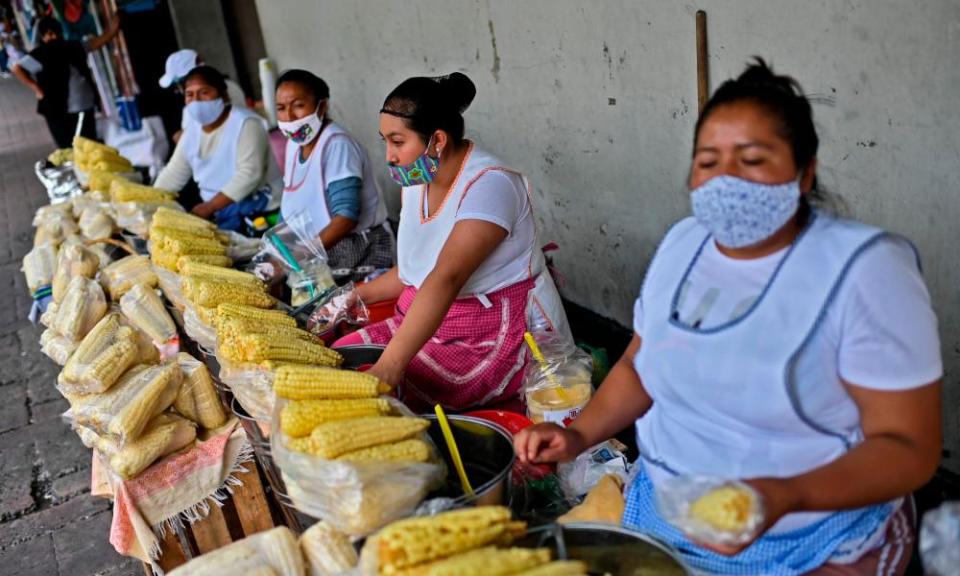IMF chief: Covid will widen inequality without global action

The head of the International Monetary Fund has given a stark warning that Covid-19 will lead to a lost generation unless urgent steps are taken to prevent the pandemic widening the gap between rich and poor countries.
Kristalina Georgieva, the IMF’s managing director, said financial support for the most vulnerable countries had to be stepped up to prevent long-time scarring that would roll back anti-poverty efforts of recent decades.
Writing for the Guardian, Georgieva said failure to act would reverberate around the world, with greater inequality leading to social and economic upheaval.
Related: No lost generation: can poor countries avoid the Covid trap?
A reduction in exports, reduced capital inflows, fewer tourists and reduced remittances represented a “poisonous cocktail” for the 70 countries most at risk.
“Just as people with weak immune systems are more vulnerable to the virus, so low-income countries with weak fundamentals are more prone to its economic effects. More than half of these countries were already at high risk of – or actually in – debt distress before the crisis began.”
In her article, the IMF managing director called for a four-pronged approach:
Governments making health their priority to ensure a durable exit from the pandemic, with special focus on the elderly and vulnerable.
Ensuring budgets are well spent by focusing on key areas of spending – such as education – and clamping down on corruption.
Laying the foundations for the future by speeding up the transition to climate-resilient, low-carbon, digital economies.
A stepping-up of support from rich countries, which required an increase not a cut in aid resources in the form of grants, concessional loans and debt relief.
“Make no mistake: without urgent action, we risk deepening the divide – globally – between the rich and poor,” Georgieva said. “The impact will be profound – and not only in low-income countries. It risks reverberating throughout the world with increased inequality leading to economic and social upheaval: a lost generation in the 2020s whose after-effects will be felt for decades to come.”
More than 100 countries have sought help from the IMF since the Covid-19 crisis began earlier this year and the Washington-based organisation has forecast a near 5% drop in global output in 2020 – the severest slump since the Great Depression.
Updated estimates of growth will be published at the IMF’s virtual annual meeting next month but Georgieva said never had so many lives and livelihoods been disrupted at the same time.
“The IMF estimates the pandemic’s loss to the global economy at around $12 trillion over 2020-21. The poorest countries – with limited resources and constrained capacity – are hit hardest: growth in low-income nations will be at a standstill this year, compared to 5% last year.”
Georgieva said debt relief efforts needed to go further. In response to a call by the IMF and the World Bank, the G20 group of leading developed and developing countries suspended official bilateral debt payments from the poorest countries this year, making about $5bn (£4bn) available to 42 low-income countries. “The initiative could be extended along with increased participation by commercial creditors,” she said.

 Yahoo Finance
Yahoo Finance 